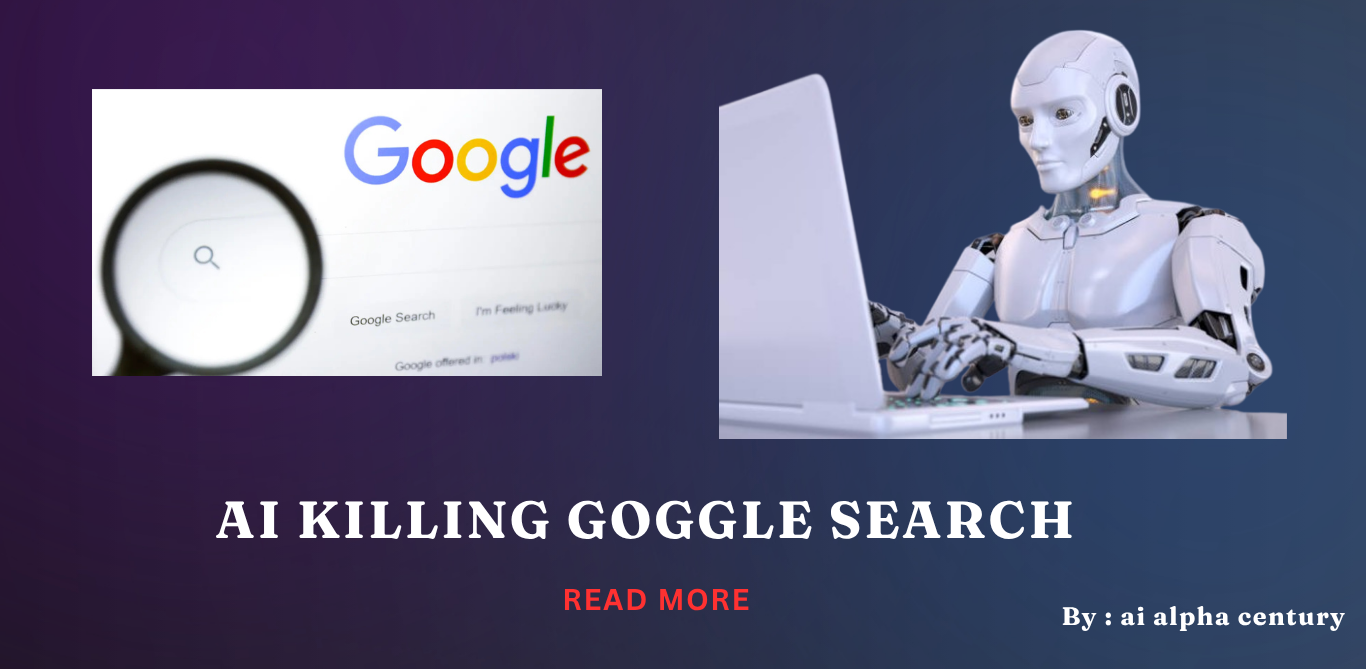Shift from traditional Google search
Remember searching on Google before 2023? You typed something in and got 10 blue links. Maybe a thousand more if you dared to click page two. You scrolled through it. You read through the articles. You pieced together the answers yourself. Of course, it took time, but you understood what you were reading. The internet is fast fading. And what is taking its place? AI overviews, instant answers by artificial intelligence. No need to click, no need to scroll, just a summary delivered to you in seconds. And for the first time For decades, it has left Google in a dilemma. It is the king of search. A title that Google has held for over a decade. Nearly 90% of it goes through Google. 90% of search.
So much so that Googling is now a verb. Yet AI is changing that. Google is going through an identity crisis, and how is it adapting? By betting on that same artificial intelligence. Let’s start with the basics. Traditional Google search relied on ranking websites. This was based on keywords, backlinks, and a sprinkle of SEO. That is a search engine Optimization. SEO. I’m sure you’ve heard of it. Maybe you were texted by your digital manager. In simple terms, it is the art of getting your website to show up on AI killing Google search. But SEO is now dead.
That model is eroding because you don’t even need to click on a link. AI can answer your question first. And this is affecting websites. Here’s a new study on this. Users now click on links just once in every 100 queries. One in a 100. In the rest of the cases, they just read the AI summary.
Google’s identity crisis and AI adaptation
Google has dominated the search engine market for decades, commanding nearly 90% of all searches, making ‘Googling’ a common term. However, the rise of artificial intelligence is disrupting this dominance, causing Google to face an identity crisis. Traditionally, Google search ranked websites using keywords, backlinks, and SEO techniques. Now, Google is adapting by integrating AI into its search approach.
SEO’s traditional role is being disrupted
Search Engine Optimization, once the backbone of web traffic acquisition, is losing its effectiveness because AI answers bypass the need to visit individual sites. This undermines the digital marketing strategies of countless businesses and content creators, forcing a rethinking of how online visibility and engagement are achieved.
Impact on websites and Google’s AI tools
Top websites have lost nearly 80% of their traffic, with both AI and Google being partly responsible. Google is rapidly adapting to the AI race by introducing new tools over the past two years, including the AI overview launched in May 2024 that summarizes search queries like a meeting brief, and AI mode that simplifies complex queries into straightforward answers.
Google’s web guide organizes search results
Google has introduced the web guide, an AI tool that organizes search results into clusters for easier navigation. For example, a search about solo travel to Argentina will be divided into categories such as safety tips, personal blogs, budget hacks, and visa rules. This approach aims to act like a librarian, helping users find relevant information while still allowing them to explore the content independently.
Issues with AI accuracy and bias
They’re also losing revenue and relevance. And all of this has a downside for you too, the consumer. Because AI is not always accurate. It can hallucinate or distort sources. It often provides no links and prioritizes alphabet owned content, meaning content that is owned by Google’s parent company, Alphabet. for example, YouTube videos over other sources. And this is a problem for Google, too. After all, it earns most of its revenue from ads. In 2024, ad revenue was more than $260 billion. But summarizing answers hurts that model. Although now Google is doing it on purpose. It is sacrificing its old cashcow. Do you know why? Because it would rather change its search engine than be taken over by another platform. So, is Google search dying or is it reinventing? You could say it’s a bit of both. Google search as we knew it is dying, but search as a concept, well, that’s not going anywhere. Instead, it is being reimagined by Google itself. So, the way we search has changed for good and Google is racing to stay ahead of the answers.
Google’s search reinvention and future
Google is reinventing search as we know it. With the rise of AI-powered search, traditional keyword queries are evolving into more natural, intuitive experiences. At the heart of this transformation is Google’s Search Generative Experience (SGE) — a new AI model that delivers quick, conversational answers right at the top of search results.
This shift means:
- Faster, more accurate answers
- Reduced need to click through multiple websites
- Personalized, contextual results using AI
Google is focusing on multimodal search, where users can combine text, voice, and images for smarter results. With Google Gemini AI, even complex queries — like planning a trip or comparing products — are handled effortlessly.
What does this mean for the future?
- SEO strategies must adapt to featured AI results
- Content needs to be more helpful, structured, and authoritative
- Businesses must optimize for AI snippets and conversational relevance
As Google evolves, staying ahead means embracing this AI-first world








